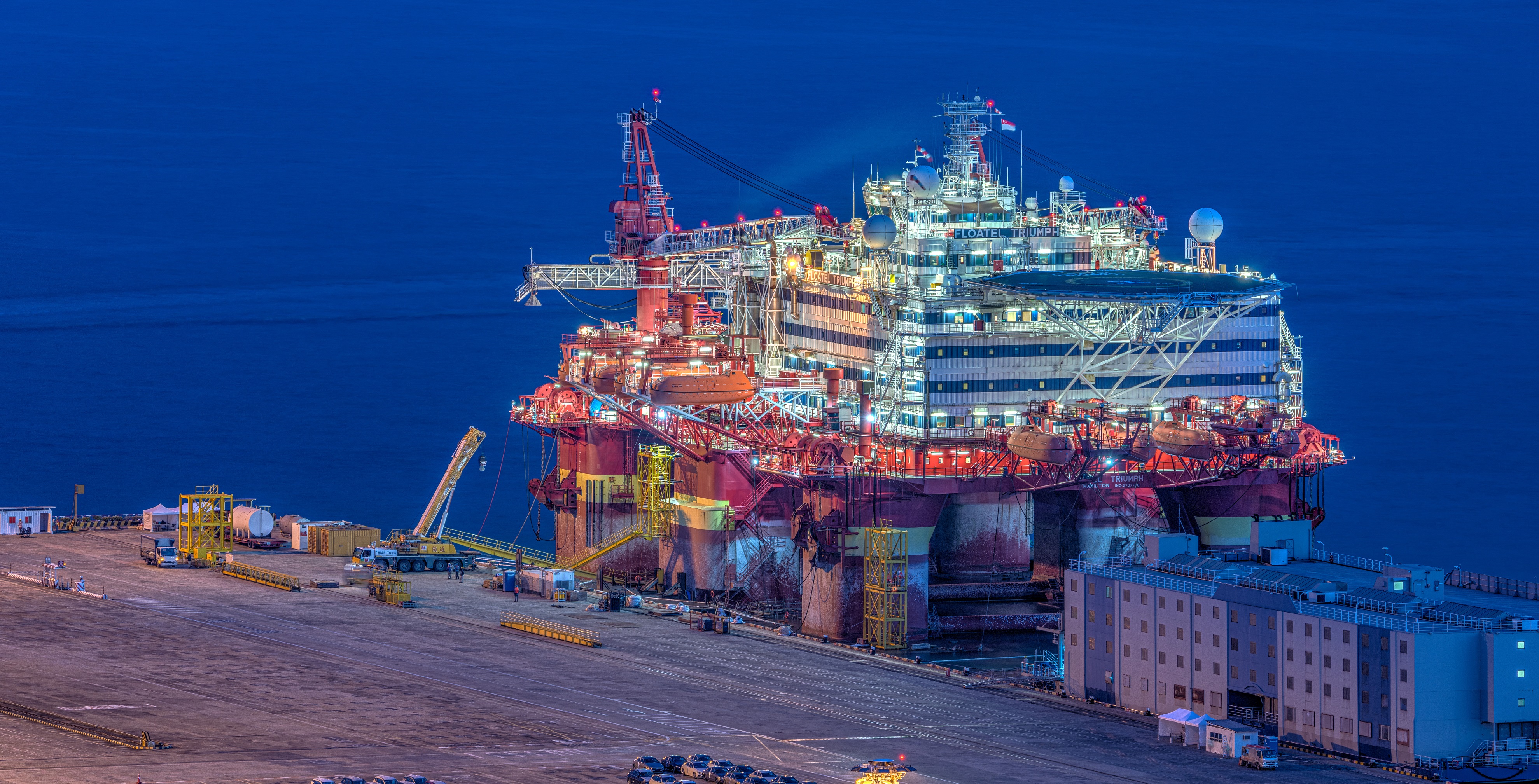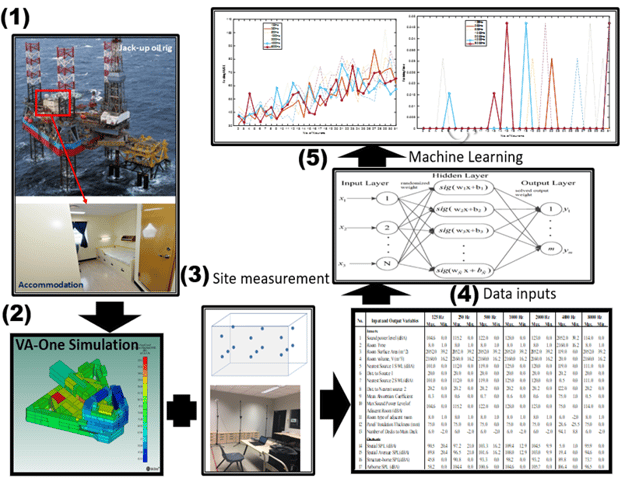Using AI to design offshore accommodation and workspaces with lower noise levels
13 July 2023 | By: Newcastle University | 2 min read
Living and working offshore on ships, production platforms, construction barges and other vessels can expose people to high levels of noise. In Singapore, we’re working with industry to find ways that AI can help us to design quieter spaces.
Contents:
- Threats to workers based at sea
- What can Artificial Intelligence do to help acoustic engineering?
- An adaptive online sequential extreme learning machine (AOS-ELM) to predict sound pressure levels
- And what’s next?
Threats to workers based at sea
The offshore world is exciting and innovative. New technology, ground-breaking projects, and working remotely make it a fascinating workplace. But working offshore also has a wide range of risks to people’s health, safety, and comfort.
One of the threats to safety and comfort offshore is noise. There is almost always some form of power generation, propulsion, or station keeping that can be heard. Naturally, some spots are noisier than others such as engine rooms or equipment spaces. But even in crew accommodation spaces a gentle background humming can almost always be heard.
For reasons of both safety and comfort, vessel and platform operators are interested in ways of reducing noise levels. Furthermore, they are particularly interested in ways to reduce noise through innovative design and build. Retrofitting noise dampening measures can be very expensive so being able to model, simulate and predict noise risks could bring cost savings and improved comfort and safety.
What can Artificial Intelligence do to help acoustic engineering?
Traditional approaches to predicting noises in enclosed spaces rely on architectural acoustics “rules” and empirical formulae. But these approaches can be imprecise and expensive, combining third-party software and modeling limited by set assumptions.
Here in Singapore, we are working with Sembcorp Marine, a global marine and offshore engineering group, to explore whether AI might help us to develop new, precise, cost-effective methods of reducing noise.
We’re exploring if neural networks – a type of machine learning particularly adept at working with complex algorithms – might be able to predict the noise levels in offshore enclosures. We think it might take less time and require fewer resources than current commercial acoustic software.
With funding from SembCorp Marine and the Singapore Economic Development Board, we've established a new Ph.D. project that ultimately aims to reduce the noise and improve crew habitability offshore.
An adaptive online sequential extreme learning machine (AOS-ELM) to predict sound pressure levels
We have deployed an adaptive online sequential extreme learning machine (AOS-ELM) to predict the frequency-dependent sound pressure level (SPL) data of various compartments on-board.
With limited samples and sequential data for training during the initial design stage, a conventional neural network training would give significant errors. There would also be long computing times as the available inputs are mapped to sound levels for the entire offshore platform.

Instead, the AOS-ELM approach uses allows gradual increases in the dataset: as initial designs of the offshore platform are iterated and improved, the new data is able to be fed into the model for new learning.
Early results show smaller errors and shorter training times for the AOS-ELM compared to other types of ELM-based learnings and other gradient-based methods in neural network training.
And what’s next?
Our hope is that adopting this model into offshore platform design will:
- Improve prediction of noise at the design stage
- Reduce the need for expensive construction adjustments or retrofitting
- Increase crew habitability
Further reading:
- Read the paper: Chin C, Ji X. Adaptive Online Sequential Extreme Learning Machine for Frequency-Dependent Noise Data on Offshore Oil Rig. Engineering Applications of Artificial Intelligence 2018, 74, 226-241
- Read the paper: Chin CS, Ji X, Woo WL, Kwee TJ, Yang WX. Modified Multiple Generalized Regression Neural Network Models using Fuzzy C-Means with Principal Component Analysis for Noise Prediction of Offshore Platform (Open Access). Neural Computing and Applications 2019, 31(4), 1127–1142
You might also like:
- Find out more about Professor Cheng Chin – Chair Professor in Intelligent Systems Modelling and Simulation
- Discover the work of our marine, offshore and subsea technology research group at Newcastle University
- Explore our work at Newcastle University in Singapore
- Read more about Sembcorp Marine Ltd
